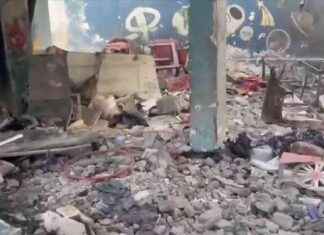The new geopolitical situation forces the European Union to “move from emergency solutions to structural measures” to strengthen its defense industry. It is the starting point of communications on the Strategy for the European Defense Industry and the new Program for the sector (EDIS and EDIP, in English) that the European Commission will adopt next Tuesday and which is currently the subject of intense negotiations. internal.
Security and defense promise to be the political and economic driving force of the next European legislative cycle, but the community executive wants to raise the level of ambition, which is why in the final stretch of her current mandate, President Ursula von der Leyen and the Commissioner for Internal Market and Industry, Thierry Breton, are now going to put some ideas on the table to the national governments and propose that the common budget finance new initiatives with a view to increasing these items when the Twenty-seven agree on the accounts for the period 2028-2035. In short, it is about taking another step in the ad hoc initiatives launched in the heat of the Russian invasion of Ukraine to buy ammunition and reinforce production capacities.
The European Commission plans to support industrialization projects with the community budget that will allow us to move from prototypes financed by the European Defense Fund “to an authentic European weapons program,” explains an internal note from community services to which La Vanguardia, an initiative that responds to a recurring complaint from the industry regarding the lack of commercial monitoring of these projects. Another possible important measure would be the implementation of a “European military sales mechanism” through a single centralized catalog that by default would have “an opening clause in the purchase contracts, which would change “completely” according to sources in the sector. current national logic. Among the arsenal of measures that Brussels is considering proposing to governments next week also includes the creation of a supply chain support fund (FAST) and a new legal framework for cooperation in arms projects through alliances, legal construction on which all these initiatives would be built.
Brussels is also considering proposing the creation of a management body made up of governments and some EU institutions and officials, such as the Commission, the High Representative of Foreign Policy and the European Defense Agency, to monitor supply chains and decide possible crisis interventions. To measure progress and encourage the “paradigm change”, it could propose a joint acquisition objective of 40% in 2030 or that between 30 and 50% of military purchases in the total European market be intra-European.
The divisions not only affect the level of ambition of the proposals but also how to finance them, a situation that occurs not only within the European Commission but between member states. The challenge is twofold: geopolitical changes force the EU to dig deep into its pockets and make formidable investments at a time when it must also begin to consolidate its public finances. As the note details, the idea of ??issuing debt to finance investments in projects that increase the EU’s defensive capabilities is opposed by Von der Leyen’s cabinet. At Ecofin, the idea has strong supporters, such as France, Poland and the Baltic countries, and serious detractors, such as Germany, as was seen last weekend at the informal meeting held in Ghent. The communications that the community executive will approve next week will be the starting point of a discussion that will last until the end of the year.








